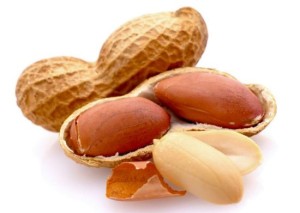Tocopherol is a naturally occurring chemical element found in a variety of foods. It is commonly called vitamin E in a generic sense, as vitamin E substances are made up of tocopherol and similar elements.
Contents
Uses
- Vitamin E is an essential vitamin for the human body. Out of the eight tocopherols, alpha-tocopherols are the most commonly available and are also preferentially absorbed and used by the body. In supplements, it is either available in natural or synthetic form. The synthetic form is only half as active as its natural form.
Benefits
- Improving Metabolism and the Immune System: Vitamin E plays a vital role in improving our immune system. It helps in DNA repair and also in improving the body’s metabolic processes.The intake of Vitamin E helps to stop the development of nitrosamines in our body. Nitrosamines are carcinogens that are formed in the stomach from nitrates in our diet. This helps in the improvement of our metabolic process. Vitamin E also helps protect some of the sensitive tissues of our body, like the skin, liver, eyes, breasts, and testes.
- Heart Diseases: Researches have shown that Vitamin E helps prevent or delay the onset of heart diseases. Blockages in the coronary arteries can sometimes cause heart attacks and these blockages in the arteries are promoted by the oxidative changes by LDL-cholesterol in the body. Vitamin E has the vital component of antioxidants, which limit the oxidation LDL-cholesterol and thus help to prevent heart disease.One of the major reasons for heart attacks is blood clots. Research shows that Vitamin E helps in the elimination of blood clots, which in turn helps to avoid heart attacks. Studies have shown that people with a high intake of Vitamin E are less prone to heart-related diseases.
- Cataracts: This condition is a result of an abnormal growth in the eye’s lens. This results in cloudy vision and a high risk of vision disability in aged people. People with a high intake of Vitamin E have shown better lens clarity as compared to those who don’t consume appropriate amounts of vitamin E. Antioxidants present in Vitamin E aid in reducing or delaying the growth of cataracts and other conditions associated with premature aging.
Cautions
- Excessive levels of tocopherol or vitamin E substances have been linked to various risks of illness. One of these is a study that found that elevated vitamin E levels could increase the risk of heart attack or stroke. There are also specific issues with tocopherol and blood coagulation. Tocopherol tends to interact with blood thinners and may create adverse conditions in some patients who take these medications.
- In some studies, tocopherol as vitamin E has been found to actually raise mortality levels in some kinds of individuals. Most of the individuals who would be extremely affected by excessive vitamin E levels have existing health conditions that this substance can exacerbate.
- In addition to the above, pregnant women are recommended to take lower levels of vitamin E. High levels of tocopherol elements have been linked to congenital heart defects in some types of birth. That makes vitamin E supplements a very sensitive dietary supplement, and something to watch for in the diets of pregnant mothers, the elderly, and other high-risk patient groups.
Interactions
- Cyclosporine (Neoral, Sandimmune) interacts with Tocopherol
Taking large amounts of vitamin E along with cyclosporine (Neoral, Sandimmune) might increase how much cyclosporine (Neoral, Sandimmune) the body absorbs. By increasing how much cyclosporine the body absorbs, vitamin E might increase the effects and side effects of cyclosporine (Neoral, Sandimmune). - Medications changed by the liver (Cytochrome P450 3A4 (CYP3A4) substrates) interacts with Tocopherol
Some medications are changed and broken down by the liver. Vitamin E might increase how quickly the liver breaks down some medications. Taking vitamin E along with some medications that are broken down by the liver can decrease the effectiveness of some medications. Before taking vitamin E talk to your healthcare provider if you are taking any medications that are changed by the liver.Some medications changed by the liver include lovastatin (Mevacor), ketoconazole (Nizoral), itraconazole (Sporanox), fexofenadine (Allegra), triazolam (Halcion), and many others. - Medications for cancer (Chemotherapy) interacts with Tocopherol
Vitamin E is an antioxidant. There is some concern that antioxidants might decrease the effectiveness of some medications used for cancers. But it is too soon to know if the interaction occurs. - Medications that slow blood clotting (Anticoagulant / Antiplatelet drugs) interacts with Tocopherol
Vitamin E might slow blood clotting. Taking vitamin E along with medications that also slow clotting might increase the chances of bruising and bleeding.Some medications that slow blood clotting include aspirin, clopidogrel (Plavix), diclofenac (Voltaren, Cataflam, others), ibuprofen (Advil, Motrin, others), naproxen (Anaprox, Naprosyn, others), dalteparin (Fragmin), enoxaparin (Lovenox), heparin, warfarin (Coumadin), and others. - Medications used for lowering cholesterol (Statins) interacts with Tocopherol
Taking vitamin E, beta-carotene, vitamin C, and selenium together might decrease the effectiveness of some medications used for lowering cholesterol. It is not known if taking vitamin E alone decreases the effectiveness of some medications used for lowering cholesterol.Some medications used for lowering cholesterol include atorvastatin (Lipitor), fluvastatin (Lescol), lovastatin (Mevacor), and pravastatin (Pravachol). - Niacin interacts with Tocopherol
Taking vitamin E along with beta-carotene, vitamin C, and selenium might decrease some of the beneficial effects of niacin. Niacin can increase the good cholesterol. Taking vitamin E along with these other vitamins might decrease the good cholesterol. - Warfarin (Coumadin) interacts with Tocopherol
Warfarin (Coumadin) is used to slow blood clotting. Vitamin E can also slow blood clotting. Taking vitamin E along with warfarin (Coumadin) can increase the chances of bruising and bleeding. Be sure to have your blood checked regularly. The dose of your warfarin (Coumadin) might need to be changed.
Other names
Vitamin E
References
Source: Organic facts, https://www.organicfacts.net/health-benefits/vitamins/health-benefits-of-vitamin-e-or-tocopherol.html
Fit Day, http://www.fitday.com/fitness-articles/nutrition/healthy-eating/what-is-tocopherol.html#b

